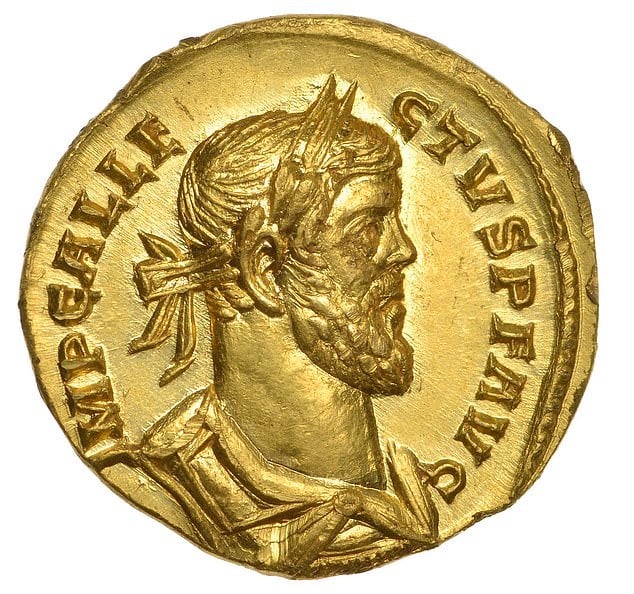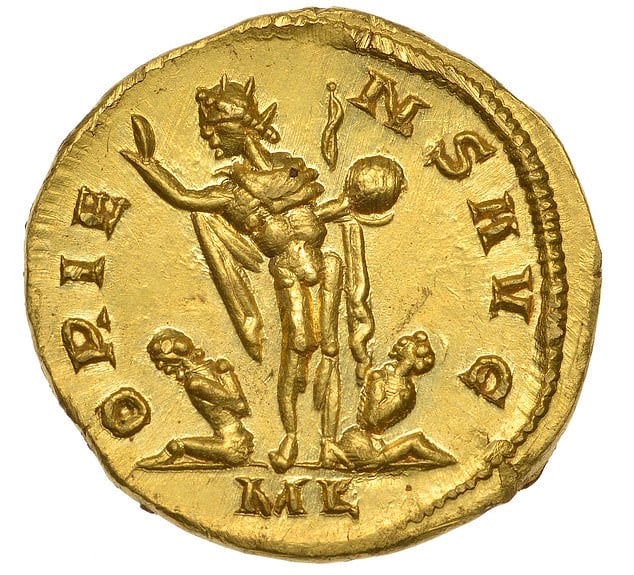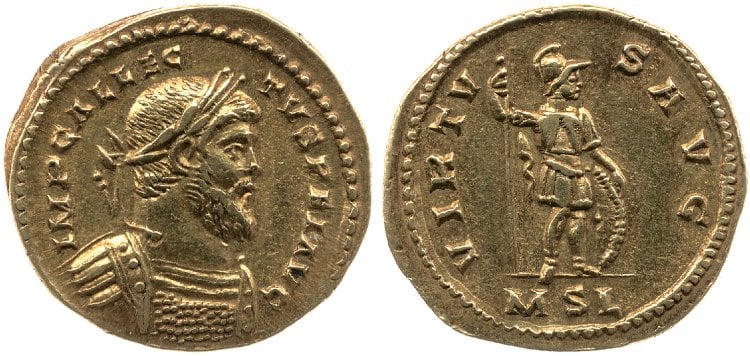Art World
An Amateur Metal Detectorist Found an Ancient Roman Coin Depicting the ‘First Brexiteer’ in an English Field
The gold coin shows the face of Allectus, who ruled Britannia as an independent nation during the Roman Empire.

The gold coin shows the face of Allectus, who ruled Britannia as an independent nation during the Roman Empire.

Sarah Cascone

A rare 24-carat gold coin almost 2,000 years old has been discovered by an amateur metal detectorist in a field in Kent, England, near the site of an ancient Roman road. Now it could sell for as much as £100,000 ($130,000) when it hits the block at London auctioneers Dix Noonan Webb on June 12.
“This really is the find of a lifetime for me and the greatest discovery I have made by miles,” the 30-year-old artist who found the coin told the Daily Mail, noting that he’s been using a metal detector for seven years. “At first I was quite skeptical of its authenticity because it was so shiny, but when I realized what it could be potentially, I just completely freaked out.”
The coin bears the visage of the Roman Emperor Allectus with two kneeling captives at the feet of the god Apollo on the obverse.
In power from 293 to 296 AD, Allectus was one of two Roman emperors who ruled Britannia and northern Gaul as an independent nation between 286 and 296 AD. The Daily Mail has dubbed him a “Brexiteer of his day” for taking Britain out of the Roman Empire. (Last month, the British Museum held a talk titled “The First Brexit,” which considered Allectus’s reign as a historical precedent for the nation’s looming exit from the European Union.)

An amateur metal detectorist discovered this rare 24-carat gold Roman aureus coin in a field in Kent. Photo courtesy of Dix Noonan Webb.
The British Museum owns the only other known example of a gold Allectus aureus, and no one has discovered a coin bearing his visage in 50 years. An expert from the museum authenticated the find.
Because only one coin was found at the site, the antiquity does not fall under the UK’s Treasure Act and it is allowed to go to auction. The proceeds will be split between the finder and the landowner.

Golden aureus coin featuring a bust of Allectus, the Roman emperor who ruled Britain as an independent nation from 293 to 296 AD, during the time of the Roman Empire. Photo ©Trustees of the British Museum.
The auction house “expect[s] it to attract a lot of interest as it just has everything going for it,” said Nigel Mills, a coin consultant from Dix Noonan Webb, told the Mail. “The rarity is there, the condition is there, and it’s made of 24 carat gold, all of which make it a fantastic coin.”